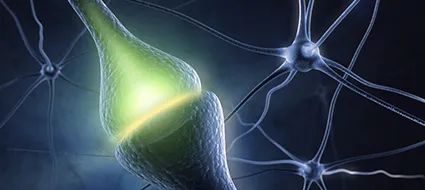NeuroMooD Study
Overgeneralised self-blame and worthlessness are key symptoms of major depressive disorder (MDD) and were previously associated with self-blame-selective changes in connectivity between right superior anterior temporal lobe (rSATL) and subgenual frontal areas.
In a previous study, remitted MDD patients successfully modulated guilt-selective rSATL-subgenual cingulate connectivity using real-time functional magnetic resonance imaging (rtfMRI) neurofeedback training, thereby increasing their self-esteem. The feasibility and potential of using this approach in symptomatic MDD were unknown.
Results
Both interventions were demonstrated to be safe and beneficial, resulting in a mean reduction of MDD symptom severity by 46% and response rates of more than 55%, with no group difference. Secondary analyses, however, revealed a differential response on our primary outcome measure between MDD patients with and without DSM-5 defined anxious distress. Stratifying by anxious distress features was investigated, because this was found to be the most common subtype in our sample. MDD patients without anxious distress showed a higher response to rtfMRI neurofeedback training compared to the psychological intervention, with the opposite pattern found in anxious MDD.
We explored potentially confounding clinical differences between subgroups and found that anxious MDD patients were much more likely to experience anger towards others as measured on our psychopathological interview which might play a role in their poorer response to neurofeedback. In keeping with the hypothesis that self-worth plays a key role in MDD, improvement on our primary outcome measure was correlated with increases in self-esteem after the intervention and this correlated with the frequency with which participants employed the strategies to tackle self-blame outside of the treatment sessions.
Methods
This single-blind pre-registered randomised controlled pilot trial tested the clinical potential of a novel self-guided psychological intervention with and without additional rSATL-posterior subgenual cortex (SC) rtfMRI neurofeedback, targeting self-blaming emotions in insufficiently recovered people with MDD and early treatment-resistance (n=43, n=35 completers). Following a diagnostic baseline assessment, patients completed three self-guided sessions to rebalance self-blaming biases and a post-treatment assessment. The fMRI neurofeedback software FRIEND was used to measure rSATL-posterior SC connectivity, while the BDI-II was administered to assess depressive symptom severity as a primary outcome measure.
Summary of Findings
These findings suggest that self-blame-selective rtfMRI neurofeedback training may be superior over a solely psychological intervention in non-anxious MDD, although further confirmatory studies are needed. The self-guided psychological intervention showed a surprisingly high clinical potential in the anxious MDD group which needs further confirmation compared vs treatment-as-usual. Future studies need to investigate whether self-blame-selective rSATL-SC connectivity changes are irrelevant in anxious MDD, which could explain their response being better to the psychological intervention without interfering neurofeedback.

